Emét means ‘to sit down’. Some command forms for TPR are: Emét chexw! – Sit down! (speaking to one person) Emét chap! – Sit down! (speaking to two or more)
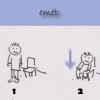

Emét means ‘to sit down’. Some command forms for TPR are: Emét chexw! – Sit down! (speaking to one person) Emét chap! – Sit down! (speaking to two or more)

Kwút means ‘to take’. You can also use if for ‘pick up’.

Hálém means ‘going’ or ‘to be going’.
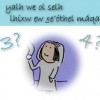
Yalh we ol selh lhíxw ew x̲ máqa means ‘I was just three or four years old’‘. (Note that Elizabeth repeats the lhíxw twice, literally ‘I was just three—three years old‘. This phrase has many words that do not translate directly into English.)
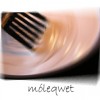
Móleqwet means ‘to mix’, or ‘to mix (it) up’.
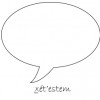
X̲ét’estem means ‘…is said (to be)‘.

Xwíléx means ‘to stand’ or ‘to stand up’. Note: there is also another word, lhx̲éylex, which also means ‘to stand’ or ‘to stand up’.

Thét means ‘to say’ in Halq’eméylem. Note: elders use thét interchangeably with another word, x̲ét’e, which also means ‘to say’.

Xwlalámet means ‘to listen to’.
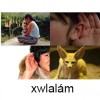
Xwlalám is the Halq’eméylem word for ‘to listen’.
